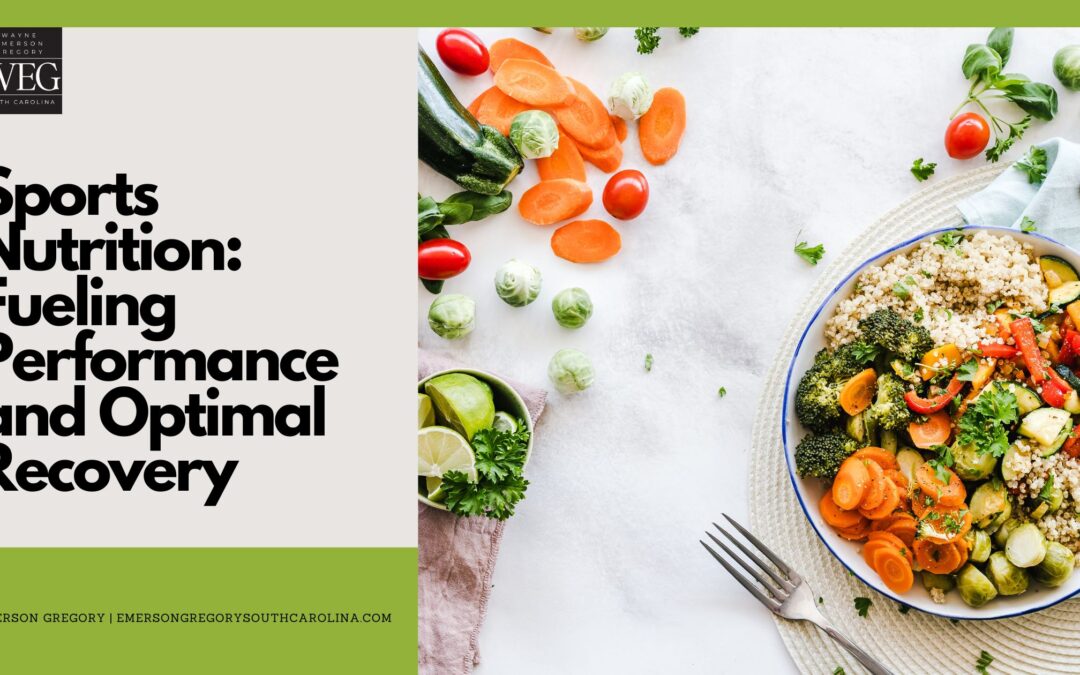Sports nutrition is critical for athletes seeking to enhance their performance and recover effectively after intense training or competition. Proper nutrition provides the necessary nutrients to optimize energy levels, improve endurance, and support muscle recovery. Let’s delve into the importance of sports nutrition in fueling performance and ensuring optimal recovery.
Fueling Performance
- Energy Requirements: Athletes have elevated energy needs due to their high physical activity levels. Carbohydrates are the primary energy source for the body during exercise. Athletes must consume adequate carbohydrates to fuel their muscles and maintain glycogen stores.
- Protein for Muscle Repair and Growth: Protein is vital for repairing and building muscles, especially after intense workouts. Athletes should incorporate lean protein sources like chicken, fish, beans, and legumes to aid muscle repair and growth.
- Hydration and Electrolytes: Proper hydration is fundamental for optimal performance. Dehydration can lead to decreased energy levels, impaired cognitive function, and muscle cramps. Electrolytes like sodium, potassium, and magnesium are crucial for maintaining fluid balance and supporting muscle function.
- Vitamins and Minerals: Essential vitamins and minerals are necessary for various physiological processes, including energy production, muscle contraction, and oxygen transport. A well-balanced diet with different fruits, vegetables, whole grains, and nuts can provide the required micronutrients.
Optimal Recovery
- Replenishing Glycogen Stores: After intense exercise, replenishing glycogen stores is crucial. Consuming carbohydrates post-workout helps restore glycogen levels, aiding in a faster recovery and preparing the body for subsequent training sessions.
- Protein for Muscle Recovery: Protein intake after exercise helps repair and rebuild muscles that may have undergone stress during the workout. A protein-rich meal or shake within the post-exercise window can enhance muscle recovery.
- Incorporating Healthy Fats: Healthy fats, such as those found in nuts, seeds, and avocados, can aid in reducing inflammation and promoting overall recovery. They are essential for various bodily functions and can support the body’s repair processes.
- Rest and Sleep: Giving yourself enough rest and sleep are vital for recovery. During sleep, the body undergoes repair and regeneration, enabling the muscles to recover and grow stronger.
The Role of Timing and Individualized Plans
Timing plays a significant role in sports nutrition. Eating the right foods at the correct times can maximize performance and recovery. Pre-workout nutrition should focus on providing energy and preventing fatigue, while post-workout nutrition should prioritize recovery and muscle repair.
It’s important to note that every athlete is unique, and their nutrition needs may vary based on their sport, training intensity, body composition, and personal goals. Therefore, individualized nutrition plans, often developed in collaboration with registered dietitians or sports nutritionists, are essential to meet specific needs and optimize performance.
Sports nutrition is crucial to an athlete’s training regimen, influencing performance and recovery. Properly fueling the body with the right macronutrients, vitamins, minerals, and hydration is essential to reach peak performance levels. Understanding the role of nutrition and tailoring plans to individual needs can significantly impact an athlete’s overall athletic performance and well-being.

